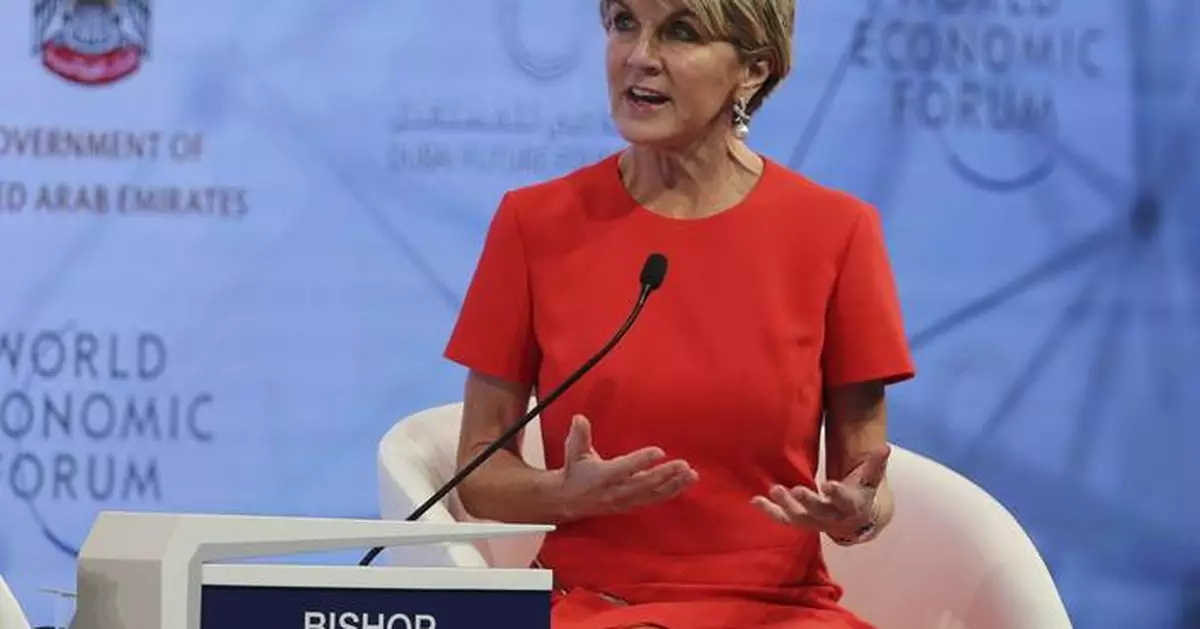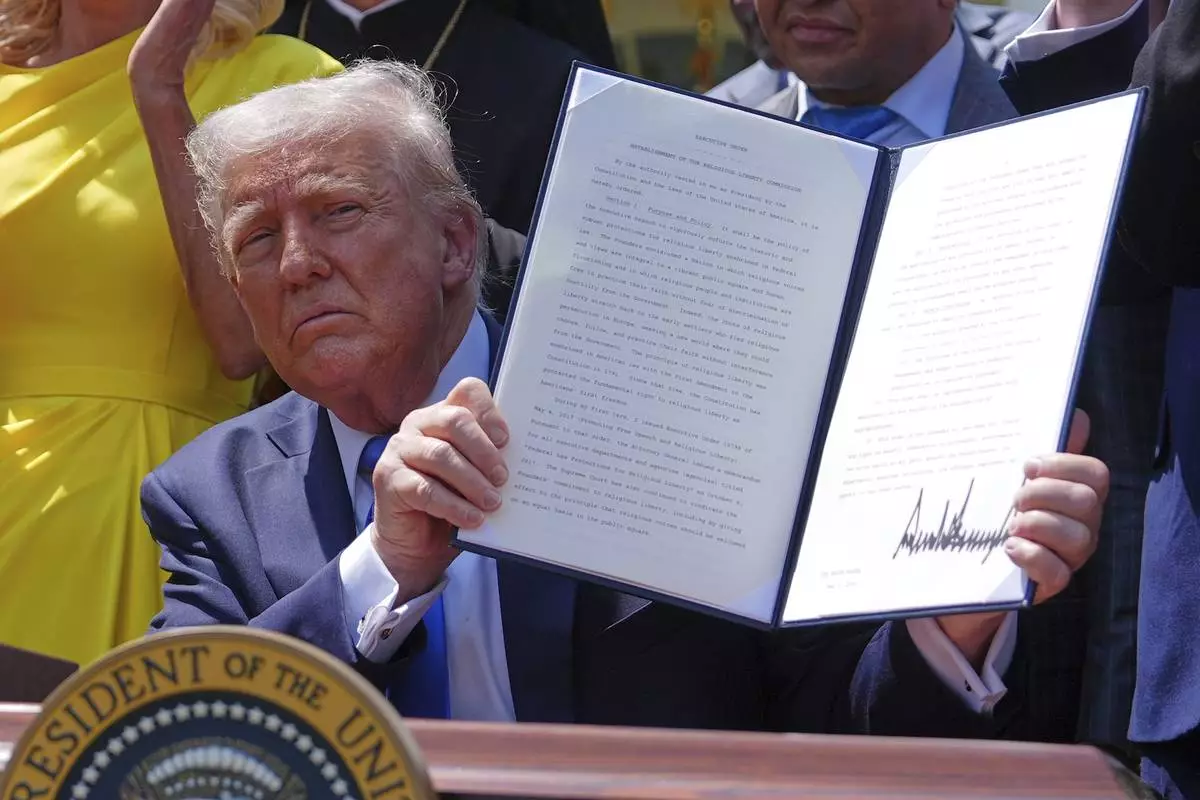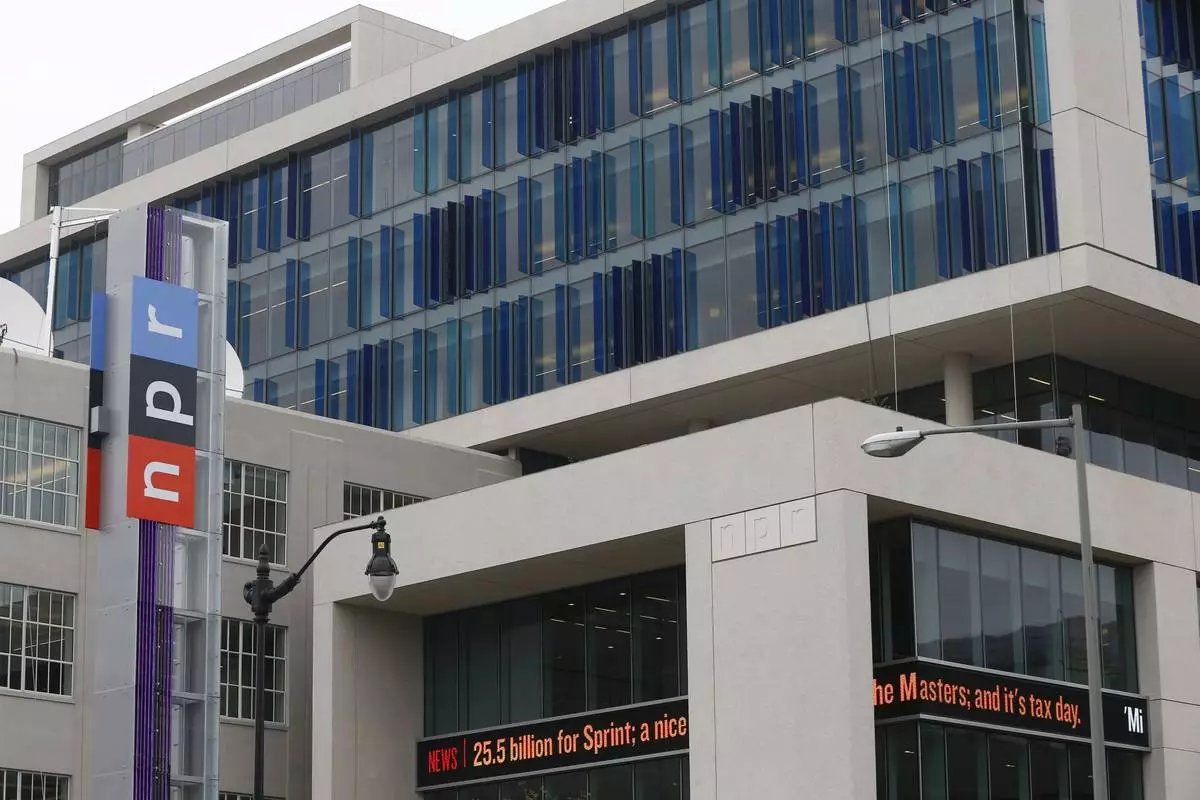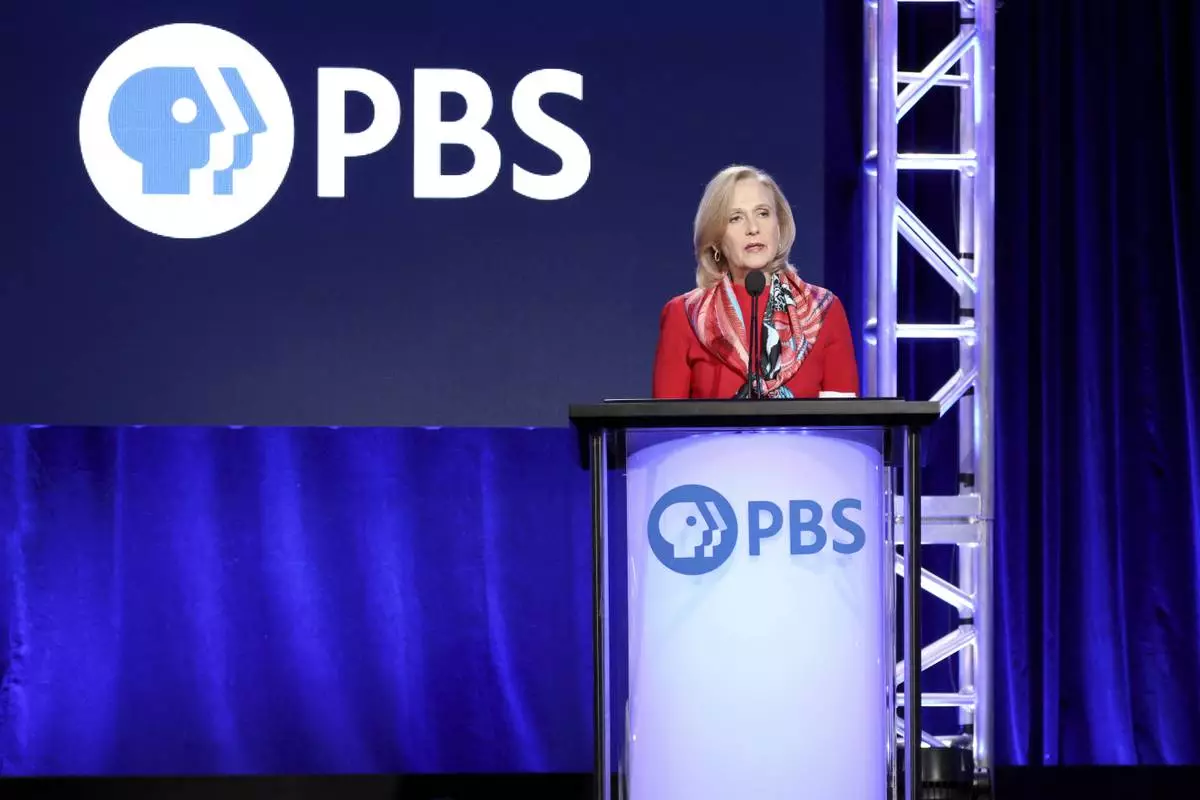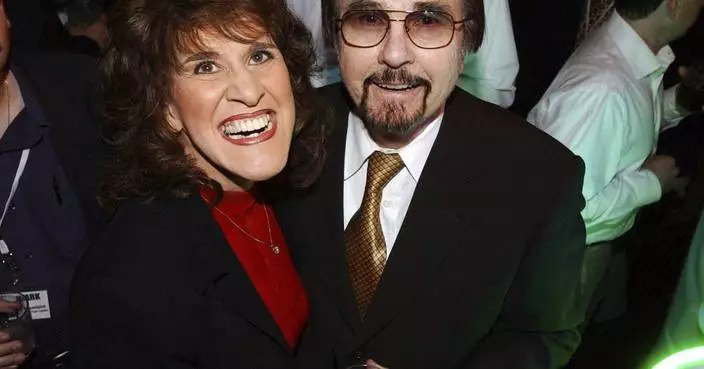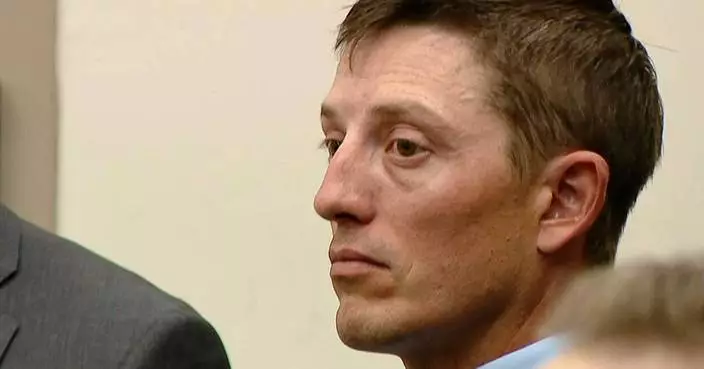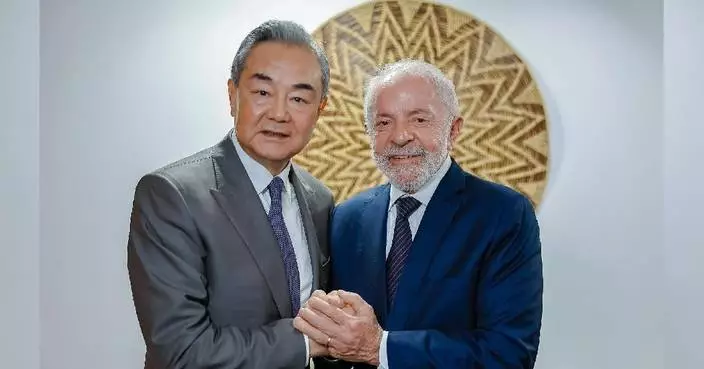BANGKOK (AP) — The U.N. special envoy for Myanmar has made a visit to the military-ruled nation, meeting Wednesday with the foreign minister as the country recovers from an earthquake that killed more than 3,600 people.
It is the second visit the envoy, Australia’s Julie Bishop, has made since her U.N appointment last year. She previously made a low-key visit that was made public only when she reported to the United Nations in October last year that she had met with the head of Myanamr's military government, Senior Gen. Min Aung Hlaing, in the capital Naypyitaw.
On Wednesday, Bishop met with Foreign Minister Than Swe and other officials at a temporary tented area outside of the ministry’s damaged building in the capital Naypyitaw, which was hard hit by the 7.7 magnitude quake on March 28, Myanmar's MRTV state television said.
The earthquake caused significant damage to six regions and states, leaving many areas without power, telephone or cell connections and damaging roads and bridges, exacerbating hardships caused by the Southeast Asian nation's continuing civil war.
Maj. Gen. Zaw Min Tun, a spokesperson for the military government, said late Wednesday that the quake’s death toll has reached 3,649, with 5,018 injured and 145 missing.
The earthquake destroyed 48,834 houses, 3,094 Buddhist monasteries and nunneries, 2,045 schools, 2,171 departmental offices and buildings, 148 bridges and 5,275 pagodas, the state-run Global New Light of Myanmar newspaper reported, citing Vice Senior Gen. Soe Win, the vice chairman of the ruling military council.
Wednesday night’s MRTV report said Bishop and Myanmar officials discussed coordination between Myanmar and the United Nations on aid for quake-affected people, but did not detail further plans.
Bishop, a former Australian foreign minister and current chancellor of the Australian National University, was appointed as Secretary-General Antonio Guterres’ envoy to Myanmar in April last year.
Her appointment drew flak last month when a group opposed to military rule in Myanmar alleged that she had business links with Chinese companies with interests in Myanmar, amounting to a conflict of interest. She denied any wrongdoing. China, along with Russia, is one of the ruling military’s major backers, while much of the Western world shuns and sanctions the generals for toppling democracy and serious human rights abuses, including the brutal use of force in its war against the pro-democracy resistance and ethnic minority guerrillas.
Guterres said ahead of Bishop’s visit that it would “reinforce the UN’s commitment to peace and dialogue.”
Although the military government and its armed opponents have declared unilateral ceasefires for a temporary period to facilitate relief and rehabilitation efforts in the wake of the earthquake, continued fighting is widespread, according to independent Myanmar media and witnesses.
Myanmar has been in turmoil since February 2021, when Myanmar’s army ousted Aung San Suu Kyi’s elected government and then violently cracked down on widespread protests against its actions. After security forces unleashed lethal force on peaceful demonstrators, some opponents of military rule took up arms.
The office of the Spokesperson for the Secretary-General on Monday announced that Bishop had visited Malaysia, a key partner of the United Nations in efforts to support a Myanmar-led political solution to the crisis and to respond to humanitarian needs following the earthquake.
The quake worsened an already dire humanitarian crisis, with more than 3 million people displaced from their homes by the war and nearly 20 million in need even before it hit, according to the United Nations.
A situation report issued late Monday by the U.N. Office for the Coordination of Humanitarian Affairs said more than 17.2 million people are living in affected areas, and urgently need food, drinking water, health care, cash assistance and emergency shelter.
It was not immediately known if Bishop would meet military chief Min Aung Hlaing, or the country’s ousted civilian leader, Suu Kyi, who is imprisoned in Naypyitaw.
Suu Kyi, 79, is serving prison sentences totaling 27 years after being convicted in a series of politically tainted prosecutions. The military government has refused to allow her to meet with any outsiders, including a special envoy from the Association of Southeast Asian Nations, to which Myanmar belongs.
——
This story has been corrected to show that Bishop's visit to Myanmar was her second, not her first, since being appointed U.N. envoy in April last year.
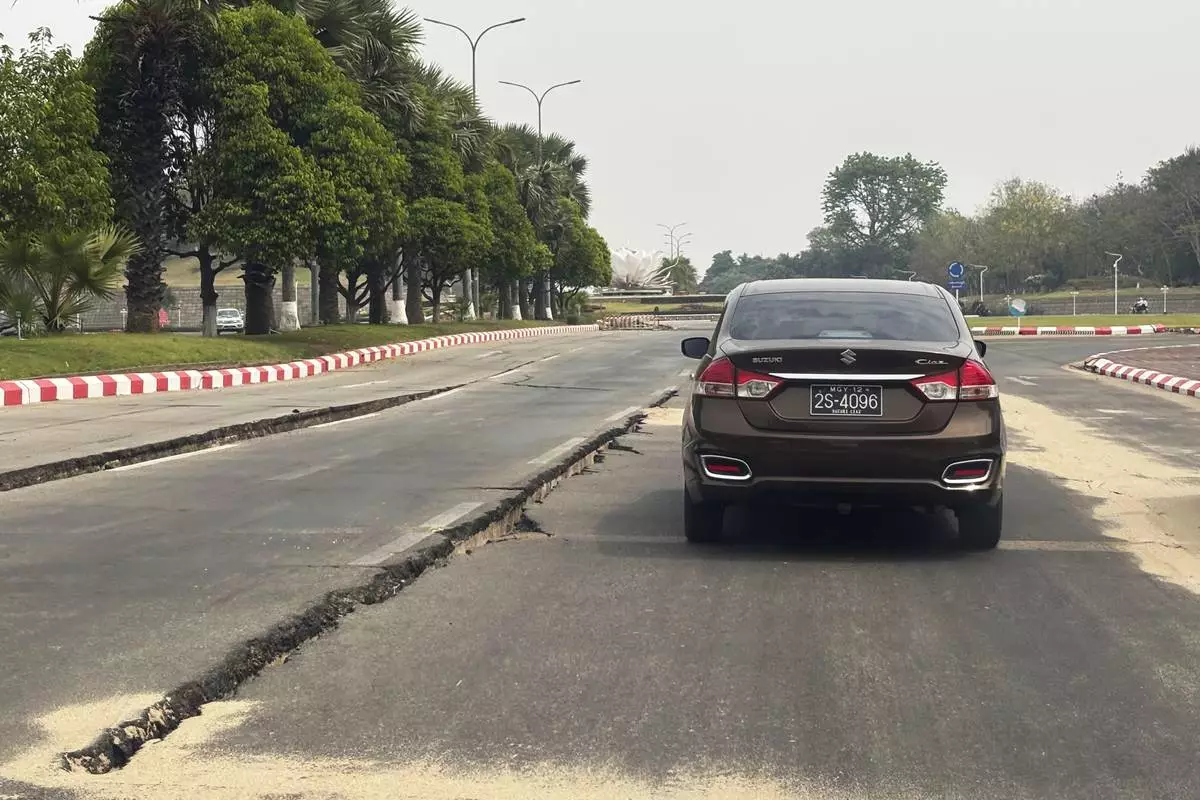
A car makes its way through a road damaged in the aftermath of the March 28 earthquake in Naypyitaw, Myanmar, Thursday, April 10, 2025. (AP Photo)
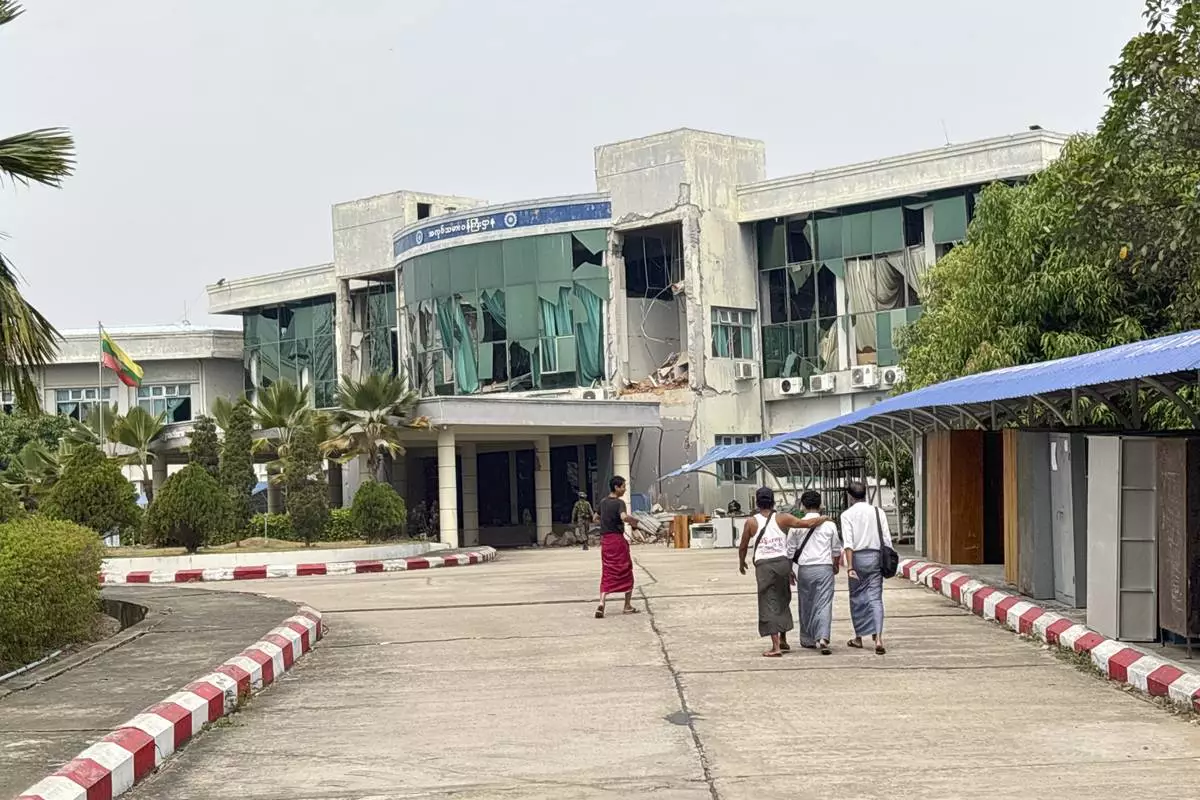
People walk near a building of the labour ministry damaged in the aftermath of the March 28 earthquake in Naypyitaw, Myanmar, Thursday, April 10, 2025. (AP Photo)
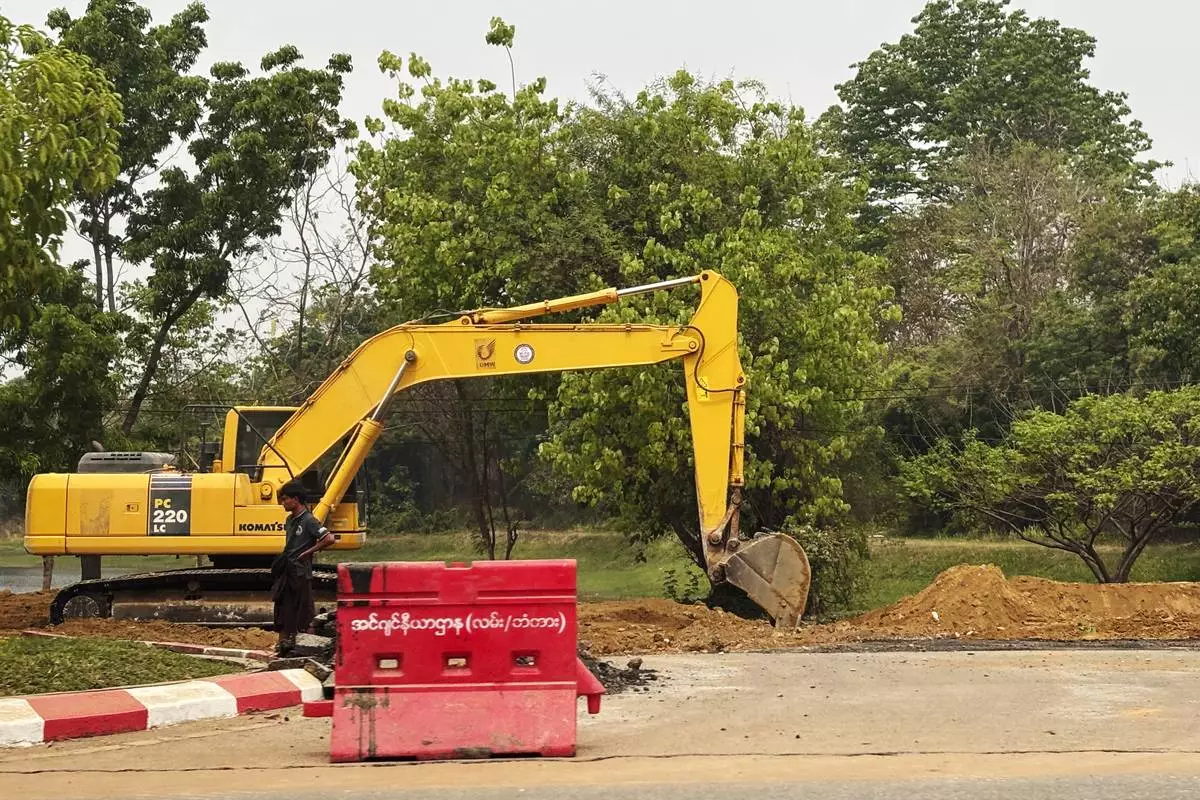
Rescuers clean debris from damaged roads in the aftermath of the March 28 earthquake in Naypyitaw, Myanmar, Thursday, April 10, 2025. (AP Photo)
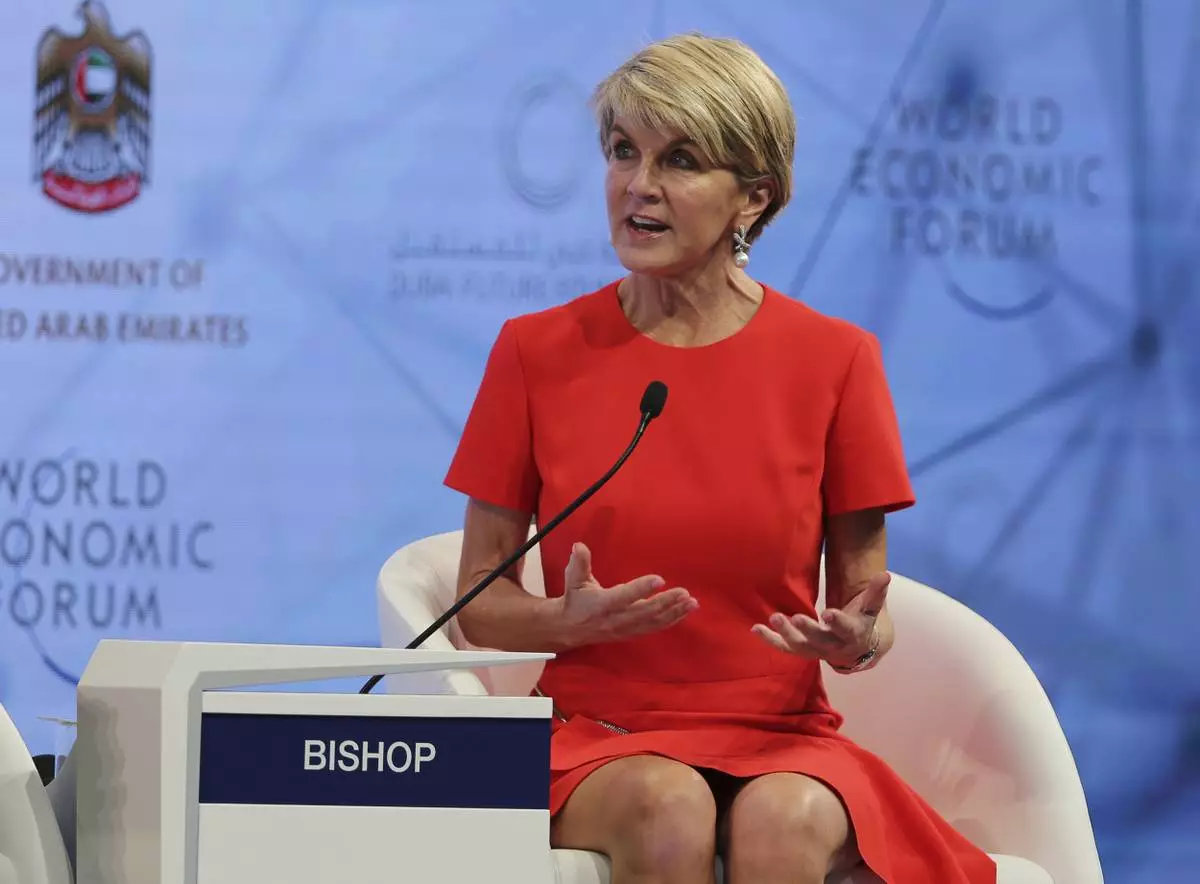
FILE - Australian Member of Parliament Julie Bishop talks at the opening panel of the World Economic Forum Global Future Council in Dubai, United Arab Emirates, on Nov. 11, 2018. (AP Photo/Kamran Jebreili, File)


